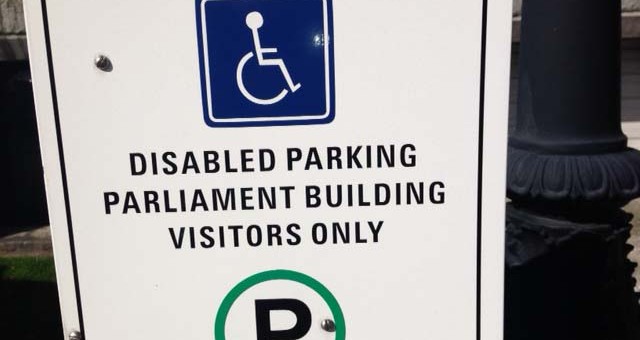Legislation
Bill 16: Tenancy Statutes Amendment Act
Today in the Legislature we initiated second reading debate of Bill 16: Tenancy Statutes Amendment Act, 2017. The bill makes a number of changes to the Manufactured Home Park Tenancy Act and the Residential Tenancy Act designed to:
- restrict the ability for landlords to use of a vacate clause with fixed term leases, except in specific circumstances that will be provided for by regulation;
- limit rent increases between fixed-term tenancy agreements with the same tenant to the maximum annual allowable amount;
- enable the residential tenancy branch to take stronger action to enforce tenancy laws with repeat violators.
Below I reproduce the text and video of my speech.
Text of Speech
A. Weaver: I rise to take my place in the debates at second reading on Bill 16, Tenancy Statutes Amendment Act.
As we’ve heard, this bill has three main goals. It makes amendments to the Manufactured Home Park Tenancy Act and the Residential Tenancy Act. The bill makes the following changes. First, it restricts the ability for landlords to use a vacate clause with fixed-term leases except in special circumstances that will be provided for by regulation. Two, it limits rent increases between fixed-term tenancies with the same tenant to the maximum annual allowable amount. Three, it enables the residential tenancy branch to take stronger actions to enforce laws and repeat violators, and also it streamlines the dispute resolution process for the return of security and pet deposits.
I rise to speak to this bill as someone who historically has both been a renter and a landlord — a landlord since 1986 in one form or another. I rise to say that I approach this bill very cautiously.
I recognize that there is a crisis facing affordability in Metro Vancouver and in metro Victoria, where vacancy rates are below half a percent or 0.6 percent.
And I recognize that there are a number of bad apples out there — I come back to the Leader of the Opposition’s term “bad apples” — who have created a crisis, in terms of fixed-term leases being used as a means of avoiding the law, the law which limits rent increases for people who are there.
Now, I approach this also from the sides of those who are landlords to recognize that the fixed-term lease often is one of the only means to actually get a tenant out of a property if the tenant is actually not responsibly taking care of that property.
I understand that there is the rental tenancy agency and the agreement. I’m concerned that without an injection of substantial funds — something I’ll explore in the committee stage, and I understand these will be forthcoming —the intent will be lost of this one tool that landlords have to ensure that they can evict a tenant in a timely fashion without having to drag through the RTA process.
Because we do know that there are some cases where we have irresponsible landlords, but we also have irresponsible renters. So I respect the need for this legislation in a basically zero-vacancy market.
We have a crisis on our hands. We need to deal with that crisis to ensure that renters, the most vulnerable in the society, are not being taken advantage of by those exploiting it. But at the same time, in the longer term, I think we need to look very carefully at how we actually move the whole Residential Tenancy Act forward to ensure that we protect good landlords.
I come to my own personal circumstance as somebody who has been a landlord for many, many years and, also, from a family of people who worked in the restaurant business, who did not have a pension. They had no pension other than by the fact that they squirrelled their savings into real estate to ensure that their pension would be the rent from this real estate in their retirement.
Now again, the single most important thing a landlord can do is get a good tenant who lives in the same place for a long time. A good tenant is more valuable than $100 a month, because you know a good tenant is one that will take care of the property and is one you do not price out of the market.
One of the means and ways that landlords use this fixed-term clause is you’ll sign a one-year agreement but not automatically go to the month-to-month, because automatically going to the month-to-month will start to invoke the RTA process.
And you view it both for protection of the landlord and the renter. This one-year period is a period to see whether the relationship…. In a tenant or renter case, for most small business landlords — not the multinationals or the big property owners but the small business ones who are really trying to get the best tenant — this is a good check to ensure that you’re a match.
In my personal case, I viewed it as a way to give back. We, for years and years, have given below-market rent in a house or two houses because we could give someone a leg-up. We could give them a chance, and we’d know that they’d be there and they’d take care of the property for a long, long time.
I mean, some members here would think it kind of odd if I said that we rented a four-bedroom house for a $1,000 a month. That is what we did here, because it covered our costs, it gave people a break, and it allowed us to protect ourselves for the future and our children in this escalating real estate market.
With that said, we can look to those bad apples. Those bad apples have taken this and made it into a crisis, and I have no sympathy for that.
People taking advantage of other people because of a difficult time in affordability is wrong at a fundamental level, which is why ultimately I support this bill, with the caveat that I’ll explore at committee stage some of the attempts that government will take to actually ensure that the rental tenancy office is resourced properly, so that delays are not there for the sake of delays, that people can get responses for concerns in a timely fashion, that landlords and renters are protected. Because ultimately, I think the collective view here is we want to make this system better.
As we know, there’s a small minority of these landlords who’ve been engaged in this business. And again, for those out there, other landlords, we really need to turn to those irresponsible landlords and say: “You know what? This is your fault.” Government has responded, as it must respond, to a crisis that was created by irresponsible landlords taking advantage of a system. For that, again, I come back to the reason why ultimately I think this is an important bill to support.
In terms of the enforcement laws, this too is important. The amendments that are being proposed will allow the branch to more strongly enforce the tenancy laws. Again, this is important because they will be able to compel the production of documents as part of penalty investigations, publish penalty decisions, refuse to accept an application for dispute resolution if an administrative penalty is owed and pursue prosecution where penalties have been levied but there is still no compliance.
This largely protects the renter, but there are clauses in here that do also protect the landlord with respect to administrative penalties if they have not been paid as well. Again, this is a good component of the legislation, which I’m very pleased to support.
Finally, when it comes to streamlining pet and damage deposits, again, this legislation…. I understand the need for doing it, but ultimately it comes back to the fact that those few bad apples out there have required such legislation be put in place.
The overwhelming majority of landlords take the return of pet and damage deposits very seriously. They follow due process. They ensure that they’re not retained for inappropriate means. To be blunt, the process, if the renter knows — going through the rental tenancy branch and the whole adjudication process — is very, very cumbersome, and nobody wants to do that. So the majority of landlords have been following process appropriately. But again, those bad apples have made this necessary.
I come to the compelling arguments put forward by the member for Vancouver–West End, who is in an area of Metro Vancouver with a very low vacancy rate, very high rental accommodations — frankly, a whole bunch of vacant places as well — and I hear his concerns. I hear his concerns, and I support the amendments, as we’ve seen fit to ensure that the retention of security deposits is not done inappropriately.
In conclusion, I support the intent of this bill to end the abuse of the current act by a small number of landlords who skirt rent controls and evict people from their homes if they won’t agree to large rent increases. I look forward to discussing the bill in committee stage and, in particular, exploring the means and ways the tenancy branch will actually be funded and the means and ways that will allow disputes to be dealt with in a timely fashion, and I look forward to listening to others in this second reading debate.
Video of Speech
Bill 14: Sheriff Amendment Act
Today in the legislature we debated Bill 14: Sheriff Amendment Act at second reading.
Bill 14 amends the Sheriff Act to provide authority for sheriff services to conduct threat and risk assessments. Sheriffs in some specialized units already conduct threat and risk assessments, but they currently do not have the legislative authority to do so – a gap that this bill closes. In addition, this bill will provide sheriffs with the legislative authority required to continue to maintain access to the Canadian Police Information Centre database for the purpose of conducting their threat and risk assessments.
Below I reproduce the text and video of my brief speech in support of this bill.
Text of Speech
A. Weaver: I, too, rise in support of this bill, Bill 14, Sheriff Amendment Act. This bill makes one significant change to the Sheriff Act, and it provides authority for sheriff services to conduct threat and risk assessments. Sheriffs in some specialized units already conduct threat and risk assessments, but they currently do not have the legislative authority to do so — a gap that this bill closes.
In addition, this bill will provide sheriffs with the legislative authority required to continue to maintain access to the Canadian Police Information Centre database for the purpose of conducting their threat and risk assessments.
It’s really a very short bill. It’s one of four today that I think we’re going to see supported strongly by both sides of the House in all cases.
Section 1 of this bill creates the additional powers for the sheriffs, and if authorized by the director of sheriff services, sheriffs will be able to identify and assess threats or risks to a person, facility, building or property in relation to which they have a power, duty or responsibility.
It moves on to say if authorized by the director, sheriffs may also identify and assess threats or risks to an employee of the government if the employee may be exposed to a threat or risk at the employee’s workplace or in relation to the employee’s work.
And of course, it also allows, for the purpose of conducting a threat or risk assessments, sheriffs to collect personal information and other information, including things like personal information on the Canadian Police Information Centre database — or any other law enforcement database, for that matter— personal information in the custody or control of the Royal Canadian Mounted Police, which I understand the member for Prince George–Mackenzie used to be working with, or any other law enforcement agency.
I, as other members, am very pleased to speak in support of this bill.
As we know, sheriffs provide for the safety and the security of British Columbians in a variety of ways — by protecting the courts of British Columbia and the participants in the judicial system, employees in the justice system and government, the public and public officials.
Sheriffs are responsible for ensuring the safety of the judiciary, legal counsel, court users, and the public and government employees as well. Sheriffs are also responsible for the safe and secure transportation of accused and convicted persons to and from court. That sheriffs do not have the legislative authority to conduct threat or risk assessments has been identified as a legislative gap — a gap that this bill, as I mentioned, closes.
Sheriffs in some specialized units already conduct threat and risk assessments, as I mentioned, and these assessments inform the security plans and staffing levels required to ensure the safety of all users of our justice system. This is an absolutely critical service that they provide for the safety of all of us.
As I’ve mentioned, this is closing some provisions that are already in practice but not supported through legislation. I’m absolutely delighted to support this legislation and would like to thank the sheriffs in British Columbia for all their work — all of the work they do protecting British Columbians and ensuring smooth operation of our justice system. My only hope is that we can find more of them so that cases before court aren’t dismissed because of the lack of sheriffs in our judicial system.
Video of Speech
Bill 12: Public Safety Statutes Amendment Act
Today in the legislature we debated Bill 12: Public Safety Statutes Amendment Act at second reading. This non-controversial bill makes two changes:
1) It amends the Offence Act to allow for e-ticketing of drivers;
2) It amends the Motor Vehicle Act to require a peace officer to impound the car a person was driving at the time that person was given a notice of a 30-day or 90-day driving prohibition as a result of a roadside alcohol test.
Below I reproduce the text and video of my brief speech in support of this bill.
Text of Speech
A. Weaver: I too rise to take my place in the debates on Bill 12 — 2017 Public Safety Statutes Amendment Act. I too rise to speak in support of this bill.
This is the fourth of four bills receiving unanimous support today in the House. It’s too bad the school children that were just here left — to see yet another bill to be agreed upon, so that people could actually see when this Legislature works instead of the fights that often occur in question period.
This bill, as was mentioned by the former RCMP officer and the member for Prince George–Mackenzie, makes two substantive changes. It amends the Offence Act to allow for e-ticketing of drivers. As was mentioned, current legislation restricts police officers to issuing paper tickets in a prescribed form. This bill will allow for the issuing of e-tickets as well as paper tickets.
I can only imagine the multiple translations of a ticket that was written in my handwriting, and I do understand, as mentioned by the member for Prince George–Mackenzie, that there must be many an occasion — and as personal experience, it was many occasions — where illegible handwriting led to tickets that would otherwise be issued not being issued. It does concern me that this will be a money grab by the province. I’m hoping that the public listening to this, riveted to this on their TV screens, will recognize that no longer will illegible handwriting let them away from tickets.
I also do support the introduction of the ability to pay the tickets on-line. I mean, literally the government is pretty much, or this in particular, one of the last things in our society that allows you to pay on-line, so it’s very timely that this is brought forward. Or timely is the wrong word. It’s about time that this was brought forward.
The three broad changes in this bill in the first section, changes to the Offence Act, allow officers, as I mentioned, to issue e-tickets and make copies of e-tickets, allows officers to create e-certificates of service and also allows for the transport of electronic records to ICBC. It will be piloted in the select regions as a part of a road safety initiative prior to rolling them out provincewide. These regions include the CRD, Vancouver, Delta and Prince George. As part of the road safety initiative, but separate from the legislation, as I mentioned, government will be rolling out a modern new innovative ability to pay your fines on-line.
The second substantive change in this act is to amend the Motor Vehicle Act to require a peace officer to impound a car that a person was driving at the time that person was given a notice of 30- or 90-day driving prohibition as a result of a roadside alcohol test.
A review of this act by astute legislative reviewers and lawyers found that immediate roadside prohibitions for alcohol-affected drivers didn’t sufficiently cover the immediate impoundment of cars. That is, there was a loophole in the act that was not providing immediate coverage for the immediate impoundment of cars. This has been regular practice since 2010, that cars would be impounded, but there actually wasn’t legislation supporting this to occur.
Roughly, there’s been something like 10,000 impoundments that have occurred since 2010, that relate to this change. The change to enable this to occur will now obviously be retroactive to 2010. So anyone out there thinking that they’re going to get some kind of reimbursement for having their car impounded is out of luck, as we quickly make this retroactive to 2010.
As I mentioned, there’s no current or previous legal challenges relating to this amendment as we bring it forward, which is a good thing. I’m not sure if something is going to happen in the next 24 hours, but at least that’s what we were told. And it’s simply a gap that government identified, or at least lawyers identified, and they felt it was prudent to actually close this gap.
As mentioned by the member from Prince George–Mackenzie, this is an uncontroversial bill, something we’re pleased to support, and, frankly, I would have thought something that we could have brought in along with an earlier bill we discussed on Red Tape Reduction Day, because we’ve made great steps in the province of British Columbia in reducing red tape without actually naming a day after the reduction.
Video of Speech
Bill 13: Pooled Registered Pension Plans Amendment Act
Today in the legislature we debated Bill 13: Pooled Registered Pension Plans Amendment Act at second reading.
The purpose of pooled registered pension plans are to reduce the burden on employers and make pensions more accessible to people who work for small businesses, freelance, and so forth.
Previously, when new multilateral agreements were made the full details of that agreement needed to be published in the BC Gazette for public information. This requirement didn’t fit with other BC statutes, where they just published the date of agreements, because this legislation was hastily modeled after the federal model that requires full agreement publication.
As it is already being published online, the BC Gazette is no longer the primary source people refer to for information.
Below I reproduce the text and video of my brief speech in support of this bill.
Text of Speech
A. Weaver: I rise to speak in favour and support of Bill 13, Pooled Registered Pension Plans Amendment Act, 2017. This is one of the rare moments in this Legislature when all members on all sides of the House can agree on the importance of moving forward with a particular bill. I can see that everyone’s happy that we can actually all agree on one issue here.
As we know, the purpose of pooled registered pension plans are to reduce the burden on employers and to make pensions more accessible to people and to people who work for, for example, small businesses, freelance operator contractors.
Previously, when new multilateral agreements were made, the full details of that agreement were needed to be published in the B.C. Gazette for public information. Now — of course the publishing is important — but that’s, in some sense, a relic of the past in this digital era that we are in today.
The requirement didn’t actually fit with other B.C. statutes as well, where they just published the date of the agreements. This initial legislation, I suspect, was rather hastily put together after the federal model that required full agreement publication and it to mirror up with federal government. It was a little bit burdensome, the process that was put in place.
It’s already published on-line. The B.C. Gazette is no longer the primary source that people go to refer to information. What this bill is doing, and why obviously we support it in its entirety, is it’s removing the requirement for full print publication of new multilateral agreements but still requires the date to be included in the Gazette.
All the multilateral agreement details will still be accessible to the public — if they so wish, on-line — but, in essence, what’s really happening is this bill is reducing publication costs, which were over $65 a page, and aligns print reporting requirements with other B.C. statutes. There are a few definitions that were previously made, and the regulations have been brought into the act since it was opened.
In conclusion, these are fairly minor changes, but their implication is very important. We believe that is a good piece of legislation, and we’re very proud to stand with our friends opposite and with government to support this legislation moving forward.
Video of Speech
Reintroducing a bill to protect RDSPs and RESPs from creditors
Inspired by the discussion on Monday with Stephanie Cadieux, the MLA for Surrey South, during Private Members statements, I reintroduced a Private Members’ bill to protect Registered Disability Savings Plans (RDSPs) and Registered Education Savings Plans (RESPs) from creditors.
Registered Retirement Savings Plans (RRSPs) were first introduced federally in 1957. Legislation enabling Registered Retirement Income Funds (RRIFs) was subsequently brought forward in the late 1970’s thereby permitting seniors to withdraw their RRSP funds over time instead of all at once or through purchase of an annuity. Since that time, most provinces, including British Columbia, have recognized the importance of protecting RRSPs and RRIFs from creditors in the event of personal bankruptcy. They have passed legislation to protect RRSPs and RRIFs from being seized during bankruptcy. This provides a bankrupt individual a glimmer of hope that they will not be destitute in their old age. Here in British Columbia, such seizures are governed by the 1996 Court Order Enforcement Act.
In 2008 the Federal Government passed legislation to allow for the creation of Registered Disability Savings Plans (RDSPs). The RDSP is a federal, tax-deferred, long-term savings plan for people with disabilities who want to save for the future. Unfortunately, under the Court Order Enforcement Act, RDSPs are not listed as a registered plan in BC’s legislation and are therefore not exempt from creditor protection. Therefore, should an individual with an RDSP go into debt, their savings in the RDSP will not be protected from seizure.
The province of Alberta has already taken such measures and amended their Civil Enforcement Act to include RDSPs under Section 92.1(I): Exemption of registered plans and registered disability savings plans. Legislation has also passed in Alberta protecting RESPs from creditors.
By ensuring the financial security and well-being of those living with disabilities, we are not only providing the individuals and their loved ones with a sense of security, we are also reducing the strain on social services that incurs when individuals are unable to care for themselves. By also including RESPs in section 71.3 of the Court Order Enforcement Act, we are protecting children who, through no fault of their own, might see their education investment seized by creditors.
Below I reproduce the text and video of my introduction, as well as the accompanying media release.
Text of Introduction
A. Weaver: I move that a bill intituled the Court Order Enforcement Amendment Act, 2017, of which notice has been given in my name on the order paper, be introduced and read a first time now.
I’m pleased to be introducing a bill intituled the Court Order Enforcement Amendment Act, 2017. Inspired by a discussion on Monday, I’m reintroducing this for the second time.
Registered retirement savings plans are protected in this province from creditors in the case of personal bankruptcy. Protecting these funds provides a small safeguard that individuals undergoing bankruptcy will not be completely destitute in their old age. It’s good law that most provinces in Canada have adopted.
However, there is no protection for funds that are part of a registered education savings plan or a registered disability savings plan. These are important funds that need equal protection. Recognizing that a child should not have their education investment seized due to misfortune that befalls their parents, the Alberta government passed legislation a number of years ago protecting RESPs. It’s with this in mind that I bring this bill forward today.
This bill amends the Court Order Enforcement Act to ensure that RESPs and RDSPs are protected by law from creditors.
Mr. Speaker: The question is first reading of the bill.
Motion approved.
A. Weaver: I move that the bill be placed on the orders of the day for second reading at the next sitting of the House after today.
Video of Introduction
Media Release
Andrew Weaver introduces bill to protect RDSPs and RESPs from creditors
For immediate release
November 1, 2017
VICTORIA, B.C. – Andrew Weaver, leader of the B.C. Green Party, today introduced a bill to protect Registered Disability Savings Plans (RDSPs) and Registered Education Savings Plans (RESPs) from creditors. The bill, the Court Order Enforcement Amendment Act, 2017, was first introduced by Weaver in March 2016 and would provide RDSPs and RESPs with the same legal protection as Registered Retirement Savings Plans (RRSPs) and Registered Retirement Income Fund (RRIFs).
“A child should not have their education investment seized due to misfortune that befalls their parents,” said Weaver
“RDSPs and RESPs are important funds that British Columbians use to save for their futures. It is only fair that they have the same protection as RRSPs and RRIFs. This protection provides a glimmer of hope to those facing bankruptcy that they will not be destitute in their old age. There is no reason why British Columbians who are eligible for the disability tax credit and contribute it into RDSPs shouldn’t have that same glimmer of hope should they ever face a dire financial situation.
“I have been raising this issue in the house for three years now. Government has had plenty of time to consider it. It is time that government acts to finally give British Columbians’ RDSPs and RESPs the equal protection they deserve.”
-30-
Media contact
Jillian Oliver, Press Secretary
+1 778-650-0597 | jillian.oliver@leg.bc.ca








